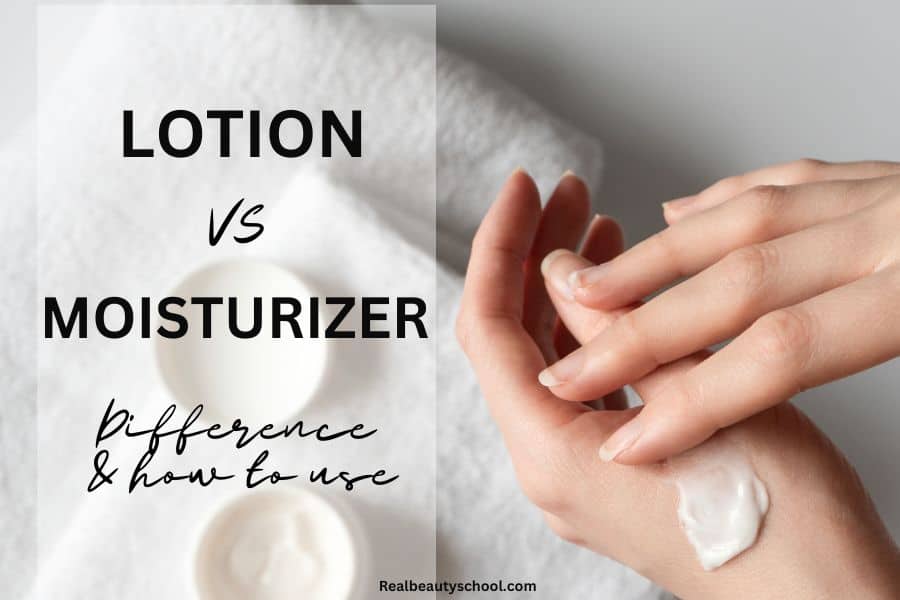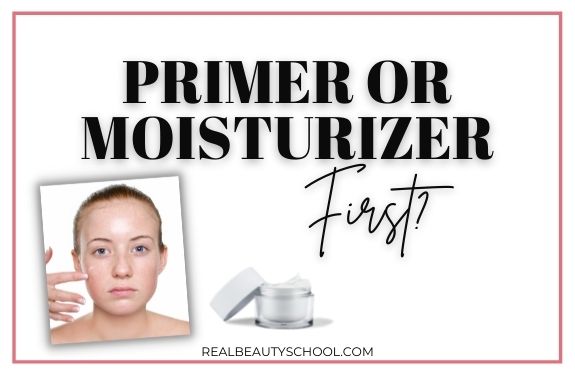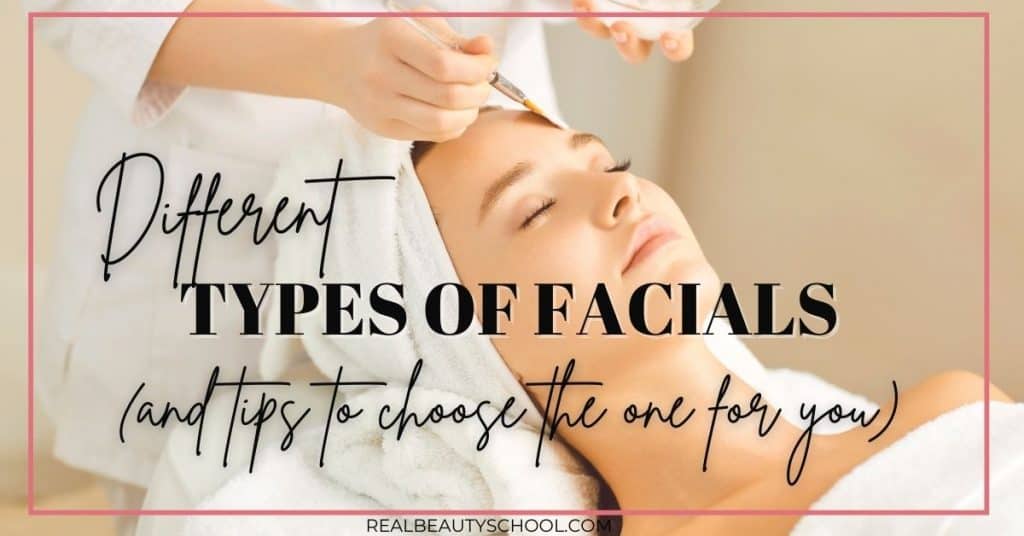Lotion vs Moisturizer: Difference, which is the best for you?
Healthy skin is essential for overall wellbeing, and proper skincare is a vital aspect of maintaining it.
With so many skincare products available in the market, it can be confusing to know which ones to use for your skin type and concerns.
Two of the most commonly used products are lotion and moisturizer, and it’s essential to understand the difference between them to make the right choice for your skin.
Lotion and moisturizer are often used interchangeably, but they have distinct differences in their composition and the level of hydration they provide.
In this blog post, we’ll explore the differences between lotion and moisturizer and answer common questions like whether you can use lotion instead of moisturizer and which product is better for different skin types.
We’ll also discuss the importance of proper skincare to maintain healthy, radiant skin.
So, let’s get started!
This post may contain affiliate links. That means if you click and buy, I may receive a small commission (at zero cost to you). Please see my full disclosure policy for details.

Lotion vs Moisturizer: Main Difference
In general, a lotion is a lighter, water-based product that is designed to hydrate the skin and provide a protective barrier to seal in moisture. On the other hand, moisturizer is a heavier, oil-based product that is designed to penetrate and hydrate the skin deeply.
Can I use lotion instead of moisturizer?
When it comes to skincare, it’s important to use the right product to achieve the best results.
Lotion and moisturizer are often used interchangeably, but they are not the same thing.
Here’s a closer look at what they are and the factors to consider before using one instead of the other.
Definition of lotion and moisturizer:

Lotion is a light, water-based product that is designed to hydrate the skin and provide a protective barrier to seal in moisture. It’s usually recommended for use on the body and can be used daily after bathing or as needed.
Moisturizer is a heavier, oil-based product that is designed to penetrate the skin and hydrate it from within. It’s typically recommended for use on the face, and there are various types available for different skin types and concerns.
Comparison of lotion vs moisturizer
Lotion is a lighter product and can feel less greasy on the skin than moisturizer. It’s also easier to spread and can be absorbed quickly.
Moisturizer is a heavier product and takes longer to absorb into the skin, but it provides deeper hydration and is more effective for combating dry skin.
Factors to consider before using lotion instead of moisturizer:
Skin type:
If you have dry skin, using lotion may not be enough to hydrate your skin properly. In this case, it’s better to use a moisturizer to deeply penetrate and hydrate the skin.
Time of day:
If you’re applying skincare products in the morning, it’s better to use a lighter lotion as it’s less likely to cause greasiness or interfere with makeup application.
However, if you’re applying products at night, it’s better to use a heavier moisturizer for maximum hydration.
Skin concern:
If you have specific skin concerns like acne or wrinkles, it’s important to use the appropriate product to address those concerns. In this case, you may need to use a specific type of moisturizer or lotion to target the issue.
In summary, whether you can use lotion instead of moisturizer depends on your skin type, the time of day you’re applying the product, and your specific skin concerns.
It’s always best to choose the product that is specifically formulated for your skin type and needs for the best results.
Should I use lotion or moisturizer for my face?

Facial skin is more delicate and sensitive than the skin on the rest of the body, which is why it’s crucial to choose the right skincare product for the face.
When it comes to choosing between lotion and moisturizer for the face, several factors need to be considered.
Importance of choosing the right product for facial skin care:
The right product can help keep your skin healthy and prevent issues like dryness, breakouts, and premature aging.
Choosing the wrong product can lead to irritation, breakouts, and other skin concerns.
Different skin types:
There are generally four different skin types: normal, dry, oily, and combination.
Normal skin is well-balanced, neither too oily nor too dry.
Dry skin is lacking in natural oils and can feel tight and flaky.
Oily skin produces excess sebum, making the skin look shiny and can lead to breakouts.
Combination skin is a mix of oily and dry, with some areas of the face being oilier than others.
Factors to consider when choosing between lotion and moisturizer for the face:
Skin type: Just like with body care, it’s essential to choose the right product for your skin type to achieve optimal results.
Texture: If you have oily or combination skin, you may want to use a lighter lotion rather than a heavy moisturizer to prevent clogged pores and breakouts.
However, if you have dry skin, you may want to use a heavier moisturizer to deeply hydrate your skin.
Ingredients: Always read the ingredients list carefully to make sure the product is suitable for your skin type and concerns.
If you have sensitive skin, look for products that are fragrance-free and have gentle, non-irritating ingredients.
SPF: If you spend a lot of time in the sun, consider using a moisturizer with SPF to protect your skin from harmful UV rays.
when choosing between lotion and moisturizer for the face, it’s essential to consider your skin type, texture preferences, ingredients, and any specific concerns like sun protection.
Well now, let’s touch on something that you have probably read on some labels of popular named brands on the market.
“Moisturizing lotion” and “Hydrating moisturizer”
This might cause you even more confusion between these products so let’s see the difference between those.
What does it mean Moisturizing Lotion?

A Moisturizing lotion like this one from Cetaphil is a skincare product that is designed to provide hydration to the skin.
It typically contains a combination of water and oil-based ingredients, such as humectants, emollients, and occlusives, which work together to help lock in moisture and prevent water loss from the skin.
Moisturizing lotions are often lightweight and easily absorbed by the skin, making them a popular choice for daily use.
They can be used on the face and body, and are suitable for all skin types, including oily, dry, and sensitive skin.
Compared to traditional moisturizers, which are typically thicker and more emollient, moisturizing lotions are often lighter and may contain a higher concentration of water-based ingredients.
This makes them ideal for use in warmer climates or during the summer months when heavy creams can feel too heavy on the skin.
What does it mean hydrating moisturizer?

A hydrating moisturizer like this one by elf is a type of skincare product that is designed to provide both water and oil to the skin, helping to increase and maintain the skin’s hydration levels.
Hydrating moisturizers usually contain ingredients known as humectants, such as glycerin and hyaluronic acid, which attract and bind moisture to the skin.
Additionally, they may contain emollients, such as ceramides and natural oils, which help to smooth and soften the skin.
Hydrating moisturizers can be especially beneficial for individuals with dry or dehydrated skin, as well as those who are looking to improve the overall health and appearance of their skin.
They can be used on both the face and body, and can be applied once or twice daily, depending on individual skincare needs.
Is lotion or moisturizer better for dry skin?

If you have dry skin, you’re not alone. Many people struggle with dry,flaky, and sometimes itchy skin.
Dry skin occurs when your skin doesn’t produce enough oil, which can be caused by a variety of factors such as genetics, aging, weather, and even harsh skincare products.
Benefits of using a moisturizer for dry skin:
Moisturizers can help replenish and lock in moisture, preventing dryness and flakiness.
They can also help soothe and heal dry, irritated skin.
Some moisturizers contain ingredients like hyaluronic acid, which can help boost your skin’s hydration levels.
Comparison of the effectiveness of lotion and moisturizer for dry skin:
While both lotion and moisturizer can provide some benefits for dry skin, moisturizers tend to be more effective.
Moisturizers typically have a thicker consistency and contain a higher concentration of ingredients that help hydrate and repair the skin.
In contrast, lotions are usually lighter and may not provide as much hydration or protection for very dry skin.
Is lotion or moisturizer better for oily skin?

If you have oily skin, you may be hesitant to use moisturizer, thinking that it will make your skin even more oily.
However, using a moisturizer is still important for maintaining healthy skin, even if you have oily skin.
Oily skin occurs when your skin produces an excess amount of sebum, which can be caused by genetics, hormonal imbalances, and environmental factors.
Oily skin is more prone to acne and breakouts, but it can also be more resilient to signs of aging.
How to Choose the Right Moisturizer for Your Skin Type
Now that we’ve discussed the differences between lotion and moisturizer, you may be wondering how to choose the right moisturizer for your skin type.
To determine which type of moisturizer will work best for you, it’s important to understand your skin type and its unique needs.
Here are some general guidelines to help you make an informed decision:
Dry Skin:
If you have dry skin, look for a moisturizer with emollients, such as shea butter or squalane, which will help to soften and smooth the skin’s surface.
You may also want to choose a cream or ointment, which will provide a more intense level of hydration to combat dryness.
Oily Skin:
If you have oily skin, a lightweight moisturizer or gel may be best for you.
Look for products that contain humectants, such as hyaluronic acid, which can provide hydration without adding excess oil to the skin.
Combination Skin:
If you have combination skin, you may need to use different moisturizers on different areas of your face.
For example, you may want to use a lightweight lotion on your T-zone (forehead, nose, and chin) to prevent oil buildup, and a cream or ointment on the drier areas of your face, such as the cheeks.
Sensitive Skin:
If you have sensitive skin, look for a fragrance-free and hypoallergenic moisturizer.
You may also want to choose a product that contains soothing ingredients, such as aloe vera or chamomile, which can help to calm and hydrate the skin.
Aging Skin:
If you have aging skin, look for a moisturizer that contains antioxidants, such as vitamin C or green tea, which can help to protect the skin from free radical damage.
You may also want to choose a product that contains peptides or retinoids, which can help to boost collagen production and improve the appearance of fine lines and wrinkles.
In recap, choosing the right moisturizer for your skin type is essential for maintaining healthy, hydrated skin.
By understanding the different types of moisturizers and the ingredients they contain, you can make an informed decision and select a product that will work best for your individual needs.
Benefits of using a lotion for oily skin:
Lotions are typically lighter in texture and absorb more quickly than heavier moisturizers, which can be more comfortable for people with oily skin.
Lotions can help hydrate the skin without leaving a heavy or greasy residue.
Some lotions contain ingredients that can help regulate oil production and prevent breakouts.
Effectiveness of lotion and moisturizer for oily skin:
For oily skin, lotions are generally more effective than heavy moisturizers.
Lotions tend to have a thinner consistency and are absorbed more quickly, which can help prevent clogged pores and breakouts.
Moisturizers may be too heavy for oily skin and can cause excess oil production, which can exacerbate the problem.
different types of moisturizers (humectants, emollients, and occlusives)

Moisturizers are a key component of any skincare routine. They work by trapping moisture in the skin and preventing it from escaping, helping to keep the skin hydrated, supple, and healthy.
There are different types of moisturizers, including humectants, emollients, and occlusives, each with its unique benefits.
Humectants
Humectants are moisturizers that work by attracting water to the skin.
They are water-based and help to keep the skin hydrated by drawing moisture from the environment and deeper layers of the skin to the surface.
Some common humectants include glycerin, hyaluronic acid, and urea. Humectants are ideal for those with oily or acne-prone skin as they are lightweight and non-greasy.
Emollients
Emollients, on the other hand, are moisturizers that work by filling in the gaps between skin cells and creating a smooth, supple surface.
They are oil-based and help to lock in moisture by forming a protective barrier over the skin. Some common emollients include petrolatum, mineral oil, and dimethicone.
Emollients are ideal for those with dry, rough, or sensitive skin as they are thick and creamy, providing long-lasting hydration.
Occlusives
Occlusives are moisturizers that work by forming a thick barrier over the skin, preventing moisture from evaporating.
They are also oil-based and help to seal in moisture and protect the skin from external factors like wind, cold weather, and pollution.
Some common occlusives include beeswax, lanolin, and shea butter.
Occlusives are ideal for those with extremely dry or sensitive skin, as they provide intense hydration and protection.
Using the right moisturizer is essential.
Humectants are great for oily or acne-prone skin, emollients are ideal for dry, rough, or sensitive skin, and occlusives are perfect for those with extremely dry or sensitive skin.
It’s essential to choose a moisturizer that fits your skin type and needs to achieve the best results.
Can I use lotion and Moisturizer Together?
Of course, you can use lotion and moisturizer together!
In fact, it’s a great way to get the most benefits for your skin.
Lotions are generally lighter and thinner than moisturizers, and are designed to be quickly absorbed by the skin.
They often contain a lot of water and can be great for providing hydration.
Moisturizers, on the other hand, are thicker and creamier, and are designed to lock in moisture and create a barrier between your skin and the environment.
By using both lotion and moisturizer together, you can get the benefits of both products.
The lotion can provide a quick burst of hydration, while the moisturizer can help to lock in that hydration and keep your skin moisturized throughout the day.
When using both products, it’s important to apply them in the right order.
Start with the lotion, applying a thin layer to your skin and letting it absorb for a minute or two.
Then, apply your moisturizer, focusing on any areas that tend to be particularly dry.
Remember, everyone’s skin is different, so it’s important to experiment and find the combination of products that works best for you.
But in general, using lotion and moisturizer together can be a great way to keep your skin healthy, hydrated, and looking its best!
Lotion vs Moisturizer vs Cream
Lotion, moisturizer, and cream are all types of skin care products used to hydrate and nourish the skin, but they differ in their texture, thickness, and ingredients.
Lotion is a lightweight, thin liquid that absorbs quickly into the skin.
Lotions are usually composed of a mixture of water and oil, along with other ingredients that can help soothe and protect the skin.
They are ideal for people with normal to oily skin, as they provide hydration without feeling heavy or greasy on the skin.
Moisturizer is a thicker, creamier product that is designed to deeply hydrate and nourish the skin.
Moisturizers typically contain a higher concentration of oil, making them ideal for people with dry or sensitive skin.
They can also contain other beneficial ingredients such as antioxidants, vitamins, and peptides, which can help to repair and protect the skin from environmental damage.
Cream is the thickest and richest of the three products, with a high concentration of oil and a lower concentration of water.
Creams are ideal for people with very dry or mature skin, as they provide deep, long-lasting hydration and can help to plump up fine lines and wrinkles.
They are also effective for use on areas of the body that tend to be drier, such as the elbows, knees, and feet.
In conlusion, lotions are lightweight and ideal for normal to oily skin, moisturizers are thicker and best for dry or sensitive skin, and creams are the thickest and richest of the three, ideal for very dry or mature skin.
Conclusion on Lotion vs Moisturizer
To recap, in this blog post, we’ve discussed the difference between lotion and moisturizer, and whether you can use lotion instead of moisturizer.
We’ve also explored the factors to consider when choosing between lotion and moisturizer for your face, and whether lotion or moisturizer is better for dry or oily skin.
So, which product is the best for your skin? It ultimately depends on your skin type and specific needs.
If you have dry skin, we recommend using a moisturizer to help replenish and lock in moisture.
On the other hand, if you have oily skin, a lightweight lotion may be more effective in keeping your skin hydrated without causing excess oil production.
It’s important to choose the right product for your skin to maintain healthy skin and prevent any skin concerns.
As always, we recommend consulting with a dermatologist if you have any concerns about your skin type or any skin conditions.
With the right skin care routine and the right product for your skin, you can achieve healthy, glowing skin.
What’s next? More related posts:
- The Best Whipped Body Butter Recipe (Homemade, Non-greasy)
- Body Butter: Benefits, What it is & How to use
- Primer or Moisturizer First? (Definitive Guide)
- Mixing Foundation with Moisturizer: Tips + Tutorial



